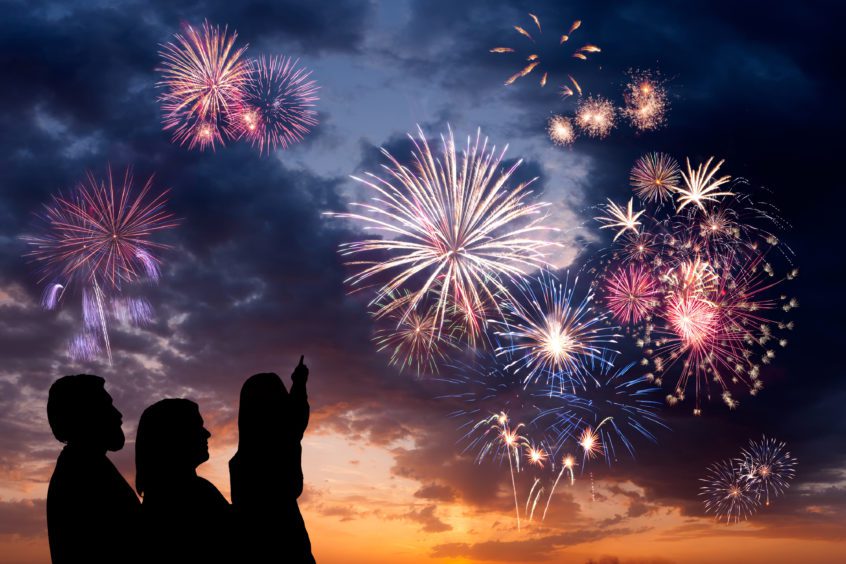For most of us, it’s been a couple of years since we experienced the sounds of summer concerts, fireworks displays or even swimming in the community pool. But as COVID-19 restrictions ease and more people become vaccinated, summer activities are returning to our schedules. Be sure to continue all safety recommendations, including mask wearing, social distancing and hand sanitizing. And add one other precaution to your list—be certain to protect your hearing. Here’s how:
Concerts—Summer concerts, especially outside, are making a comeback, but some can get pretty loud, especially if you’re seated near the performers or speakers. Extended exposure to these loud sounds can damage or even kill the inner-ear cells that activate the hearing nerves. Damage to these cells can result in hearing loss and tinnitus.
- If you’re concerned about hearing protection at concerts, consider custom earplugs and musicians’ plugs. These earplugs are specially made for your ears, and can protect your hearing, while still allowing you to enjoy the concert experience. Custom impressions are required for these products.
- It may sound like common sense, but don’t get too close to the loud speakers. The noise at concerts can exceed 110dB, which can permanently damage your hearing with prolonged exposure. If you stand further away, you’re less likely to experience any damage to your hearing because the intensity of the sound waves diminishes the more distance you put between you and the sound source.
- Take a break from the music. The longer you listen to loud music, the more likely you could experience damage to your hearing. By taking a break, you’re giving your hearing a chance to recover.
Fireworks—Whether you’re watching a display at the “K” after the ballgame, or at a local fireworks show, these explosives can be very loud. Protect your ears:
- Place earplugs into the ear canal so that they totally block the canal. Earplugs come in different shapes and sizes, and can also be custom made by taking an impression of the ear. Earplugs can reduce noise by 15 to 30 decibels (dB) depending on how they are made and fit.
- Use earmuffs that fit completely over both ears. They must fit tightly so that sound is blocked from entering the ears. Like earplugs, earmuffs can reduce noise 15 to 30 dB, depending on how they are made and fit.
- Use earplugs and earmuffs together to achieve even greater sound reduction. Use of earplugs and earmuffs is recommended when noise exposure is particularly high.
- Do not listen to loud sounds for too long. If you don’t have hearing protection, move away from the loud sound and give your ears a break.
Swimming—Taking a few laps in the pool probably doesn’t seem like it’s a risk to your hearing. But, if you’re an individual who easily gets water trapped in your ears, it could result in ongoing ear infections. And that, in turn, can put your hearing at risk. There are a few simple steps you can take to protect your hearing though:
- After swimming, always thoroughly towel dry your ears, but don’t put cotton swabs in them. Cotton swabs could push any water in the ear canal farther down.
- Use drops to help dry your ears out. Over-the-counter products are inexpensive and helpful for many people, reducing your risk of ear infections.
- If you feel like you’ve got an ear infection after swimming, be sure to visit your doctor for evaluation and treatment.
- If you swim often, consider purchasing swimmer’s ear plugs. These custom ear plugs keep water out. Custom plugs do require custom ear impressions. You should never buy custom ear plugs over the internet without a personal consultation.
Consider downloading a smartphone app that helps you measure the sound level at concerts, fireworks displays and other loud events. Two free apps you might want to consider are Decibel X or the NIOSH Sound Level Meter. Both are free, and can help you keep tabs on how loud an event is. When levels reach 85 dB or above, it’s time to use your hearing protection!
If, after attending a loud event, you notice your ears are ringing, or you’re having problems hearing, see an audiologist immediately. Ringing in your ears, or tinnitus, is one of the first signs of hearing loss or inner ear damage.
The doctoral-level audiologists at Associated Audiologists have the technology to diagnose and treat hearing loss. And, they offer custom hearing protection. Schedule an appointment.



